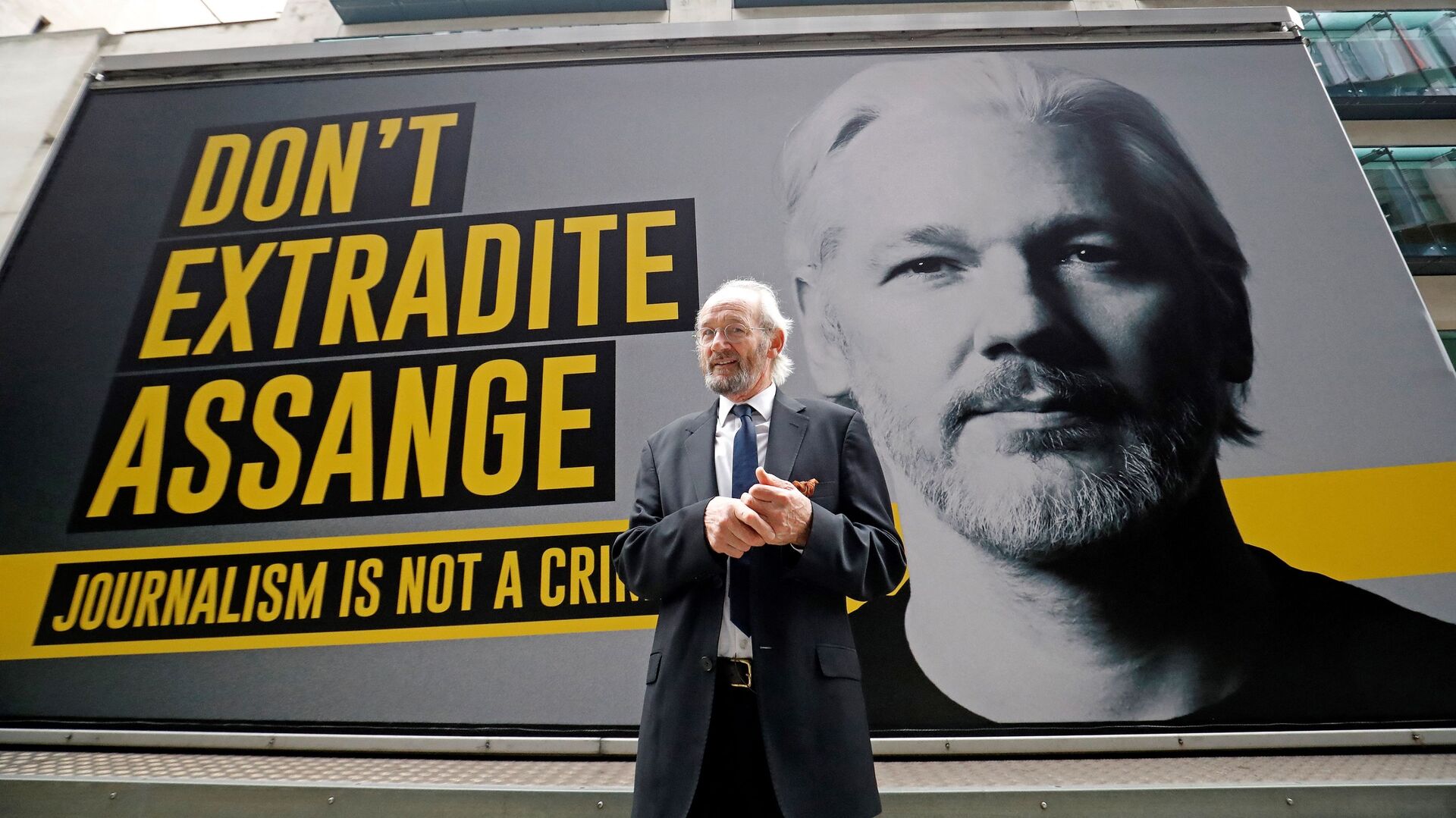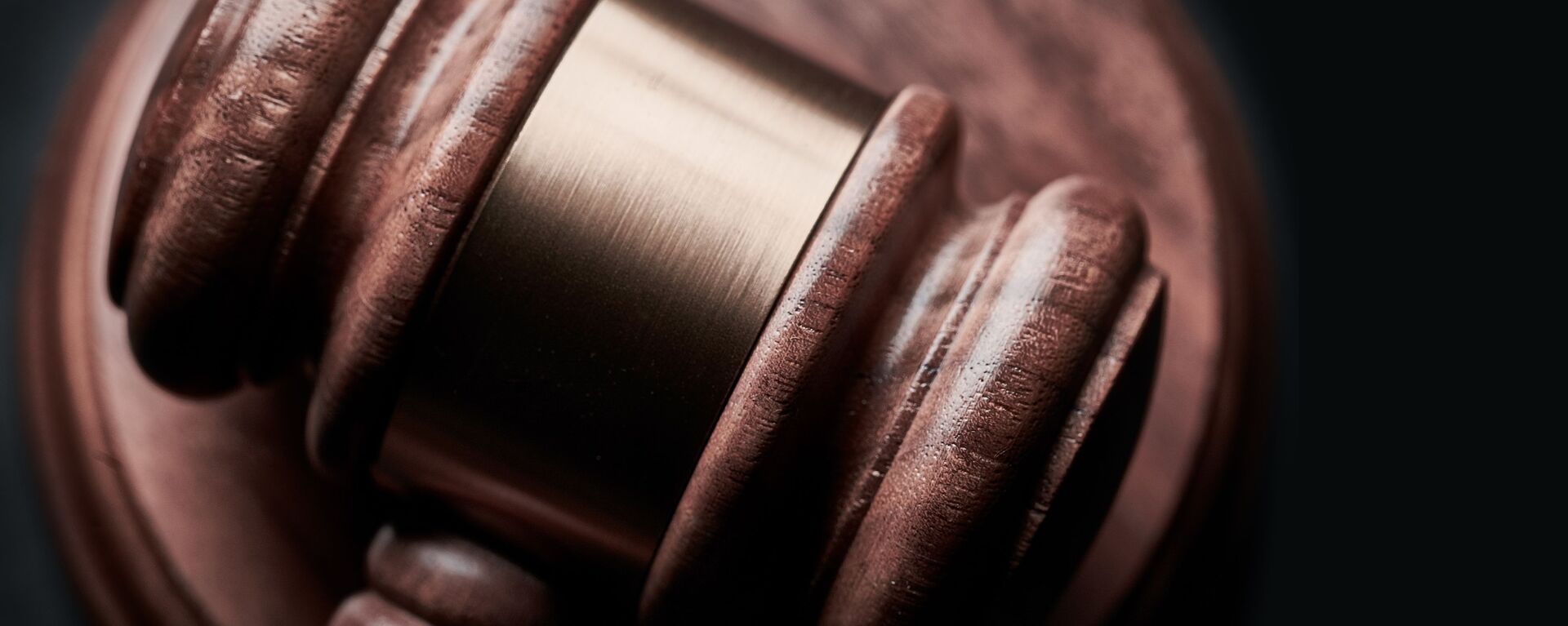https://sputnikglobe.com/20240522/uk-courts-decision-on-assanges-extradition-unlikely-to-result-in-his-exoneration-1118578263.html
UK Court's Decision on Assange's Extradition Unlikely to Result in His Exoneration
UK Court's Decision on Assange's Extradition Unlikely to Result in His Exoneration
Sputnik International
The UK's High Court of Justice decision to grant WikiLeaks founder Julian Assange permission to challenge his extradition to the United States invites cautious optimism, however his chances of being exonerated are miniscule, experts told Sputnik.
2024-05-22T06:34+0000
2024-05-22T06:34+0000
2024-05-22T06:34+0000
world
julian assange
united kingdom (uk)
london
wikileaks
european convention on human rights
https://cdn1.img.sputnikglobe.com/img/07e5/06/06/1083083737_0:0:3641:2048_1920x0_80_0_0_0e25c4b207c96b892808577fabe91e19.jpg
In March, the London High Court asked the US government to provide assurances that the WikiLeaks founder would be able to claim the First Amendment of the US Constitution, which guarantees freedoms related to religion, expression, assembly, and the right to petition. The court also asked for assurances that Assange would not be prejudiced at his trial due to his nationality, and that he would not face the death penalty. In mid-April, the US provided minimal assurances demanded by the high court to proceed with the case. When asked about the assurances provided by the US regarding constitutional safeguards, the expert suggested that these could be doubted as the US government has not unequivocally guaranteed that Assange will be fully able to claim First Amendment protections. Similarly, Michael Brenner, a professor emeritus of International Affairs at the University of Pittsburgh, observed that the way the WikiLeaks founder was treated has served the purpose of intimidating potential whistle-blowers as well as media outlets. The expert also suggested that the Biden White House and the Justice Department are not concerned about the ruling as Assange's deportation could be disadvantageous during an election year as it could leave Biden without some of his more liberal voters. "The judges are responsive to the government, the British government is highly responsive to what Washington wants ... The chances of his eventually being exonerated and freed? Next to zero," Brenner said. Assange, an Australian citizen, was transferred to London's high-security Belmarsh prison in April 2019 on bail breach charges. In the US, he faces prosecution under the Espionage Act for obtaining and disclosing classified information that shed light on war crimes and human rights violations committed by US troops in Iraq and Afghanistan. If convicted, the WikiLeaks founder could face up to 175 years in prison. One of the last means of preventing his transfer to the US may be an appeal to the European Court of Human Rights. Assange lost his previous appeal at the UK High Court last June.
https://sputnikglobe.com/20240520/london-high-court-grants-assange-opportunity-to-challenge-his-extradition-to-us-1118542766.html
united kingdom (uk)
london
Sputnik International
feedback@sputniknews.com
+74956456601
MIA „Rossiya Segodnya“
2024
Sputnik International
feedback@sputniknews.com
+74956456601
MIA „Rossiya Segodnya“
News
en_EN
Sputnik International
feedback@sputniknews.com
+74956456601
MIA „Rossiya Segodnya“
Sputnik International
feedback@sputniknews.com
+74956456601
MIA „Rossiya Segodnya“
uk court's decision, assange's extradition, julian assange
uk court's decision, assange's extradition, julian assange
UK Court's Decision on Assange's Extradition Unlikely to Result in His Exoneration
WASHINGTON (Sputnik), Kirill Krasilnikov - The UK's High Court of Justice decision to grant WikiLeaks founder Julian Assange permission to challenge his extradition to the United States invites cautious optimism, however his chances of being exonerated are miniscule, experts told Sputnik.
In March, the London High Court asked the US government to provide assurances that the WikiLeaks founder would be able to claim the First Amendment of the US Constitution, which guarantees freedoms related to religion, expression, assembly, and the right to petition. The court also asked for assurances that Assange would not be prejudiced at his trial due to his nationality, and that he would not face the death penalty. In mid-April, the US provided minimal assurances demanded by the high court to proceed with the case.
"There are reasons to be cautiously optimistic about Assange's chances of successfully challenging his extradition. The court has shown concern about Assange's rights under the European Convention on Human Rights, especially regarding free speech and potential political persecution. This recognition could play a crucial role in the appeal process," US political analyst Keith Preston said.
When asked about the assurances provided by the US regarding constitutional safeguards, the expert suggested that these could be doubted as the US government has not unequivocally guaranteed that Assange will be fully able to claim First Amendment protections.
"There are concerns that Assange's trial could be politically motivated, given the high-profile nature of his case and the sensitive information involved. The lack of a clear guarantee against political bias raises doubts about the fairness of his potential trial," Preston observed, adding that Assange's legal troubles have affected his physical and mental health and that the US assurances do not properly address those concerns.
Similarly, Michael Brenner, a professor emeritus of International Affairs at the University of Pittsburgh, observed that the way the WikiLeaks founder was treated has served the purpose of intimidating potential whistle-blowers as well as media outlets.
"The preference now likely is to let Assange die in a British prison. His health is badly deteriorating so that very deliberate workings of the courts lower the odds on his surviving. The chances of his eventually being exonerated and freed? Next to zero," Brenner said.
The expert also suggested that the Biden White House and the Justice Department are not concerned about the ruling as Assange's deportation could be disadvantageous during an election year as it could leave Biden without some of his more liberal voters.
"The judges are responsive to the government, the British government is highly responsive to what Washington wants ... The chances of his eventually being exonerated and freed? Next to zero," Brenner said.
Assange, an Australian citizen, was transferred to London's high-security Belmarsh prison in April 2019 on bail breach charges. In the US, he faces prosecution under the Espionage Act for obtaining and disclosing classified information that shed light on war crimes and human rights violations committed by US troops in Iraq and Afghanistan. If convicted, the WikiLeaks founder could face up to 175 years in prison. One of the last means of preventing his transfer to the US may be an appeal to the European Court of Human Rights. Assange lost his previous appeal at the UK High Court last June.



